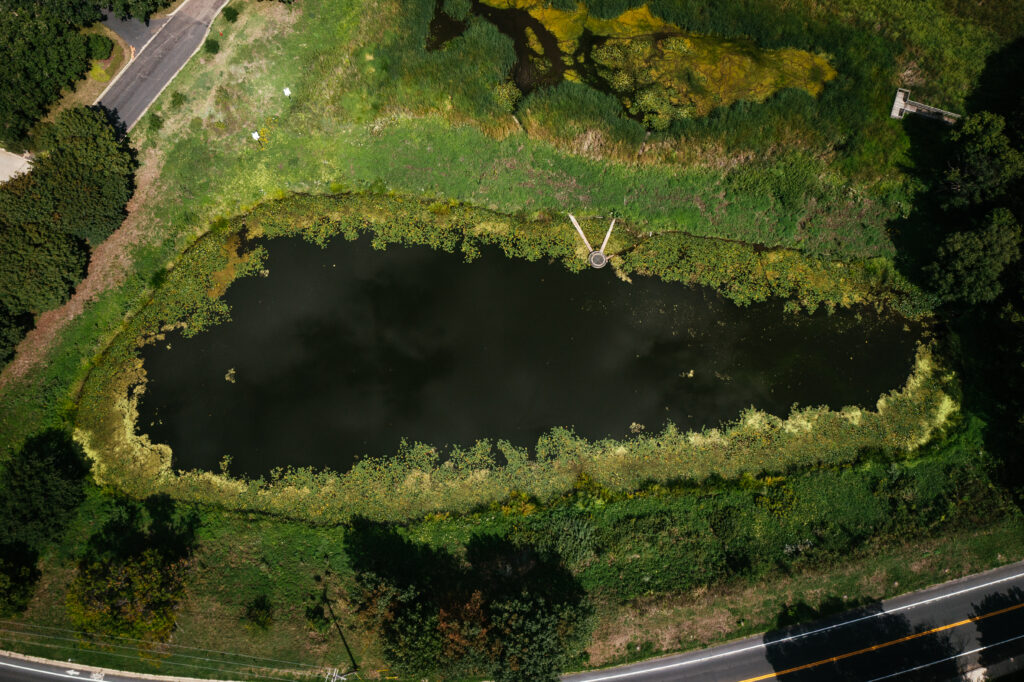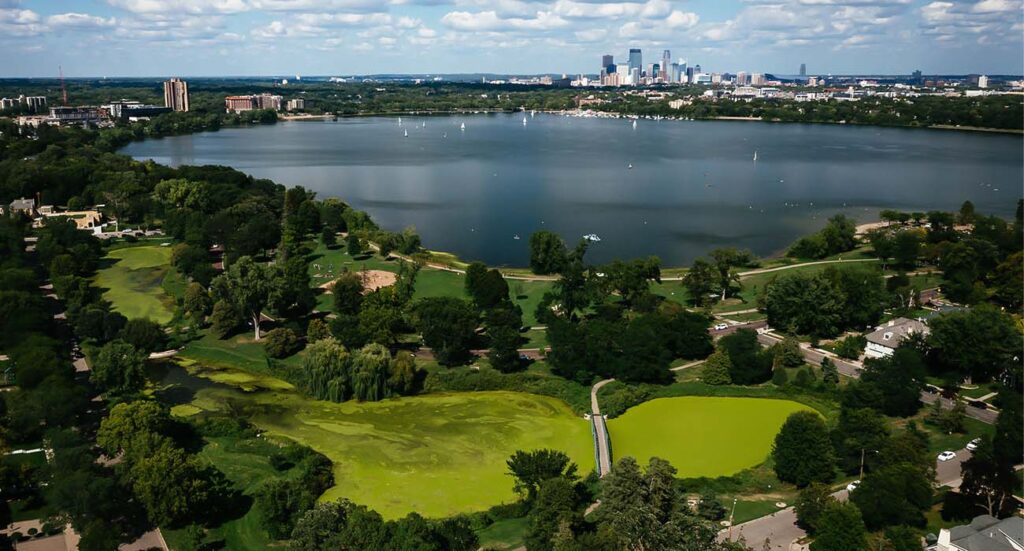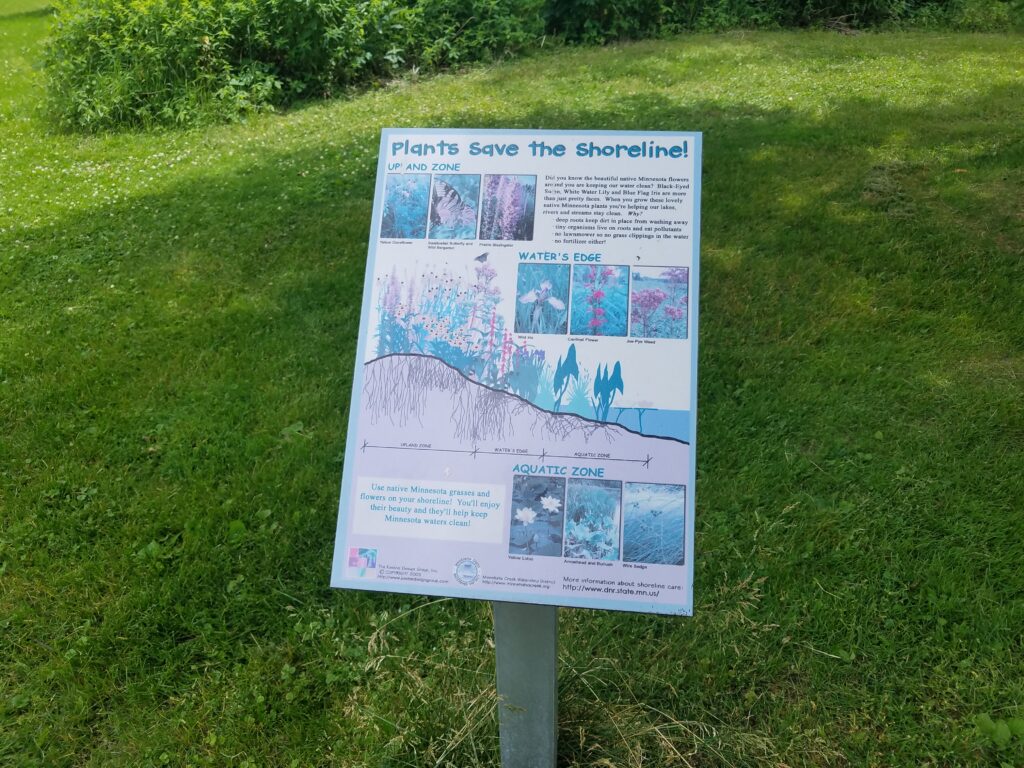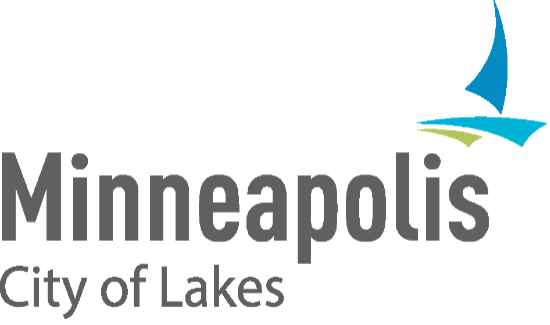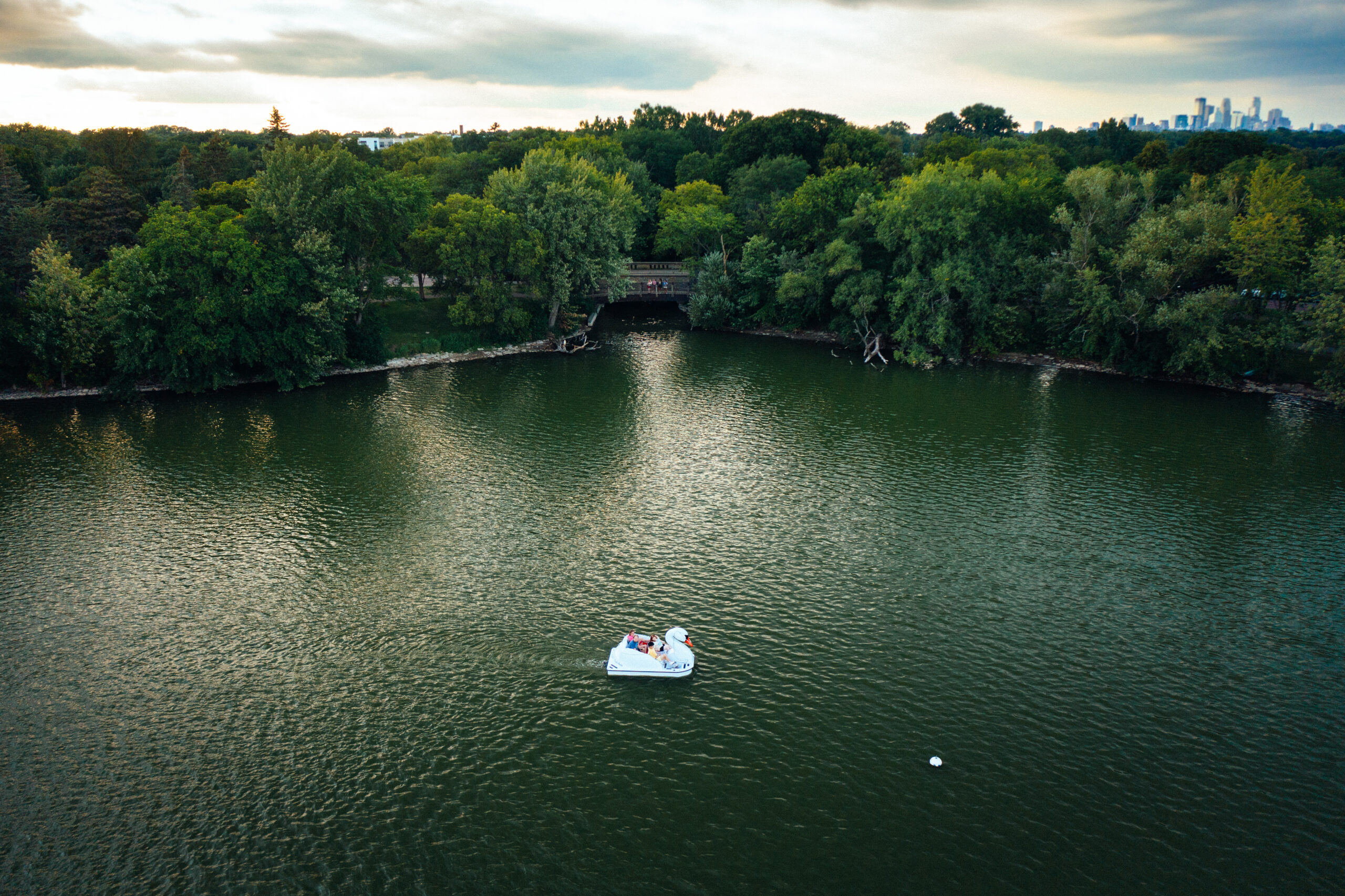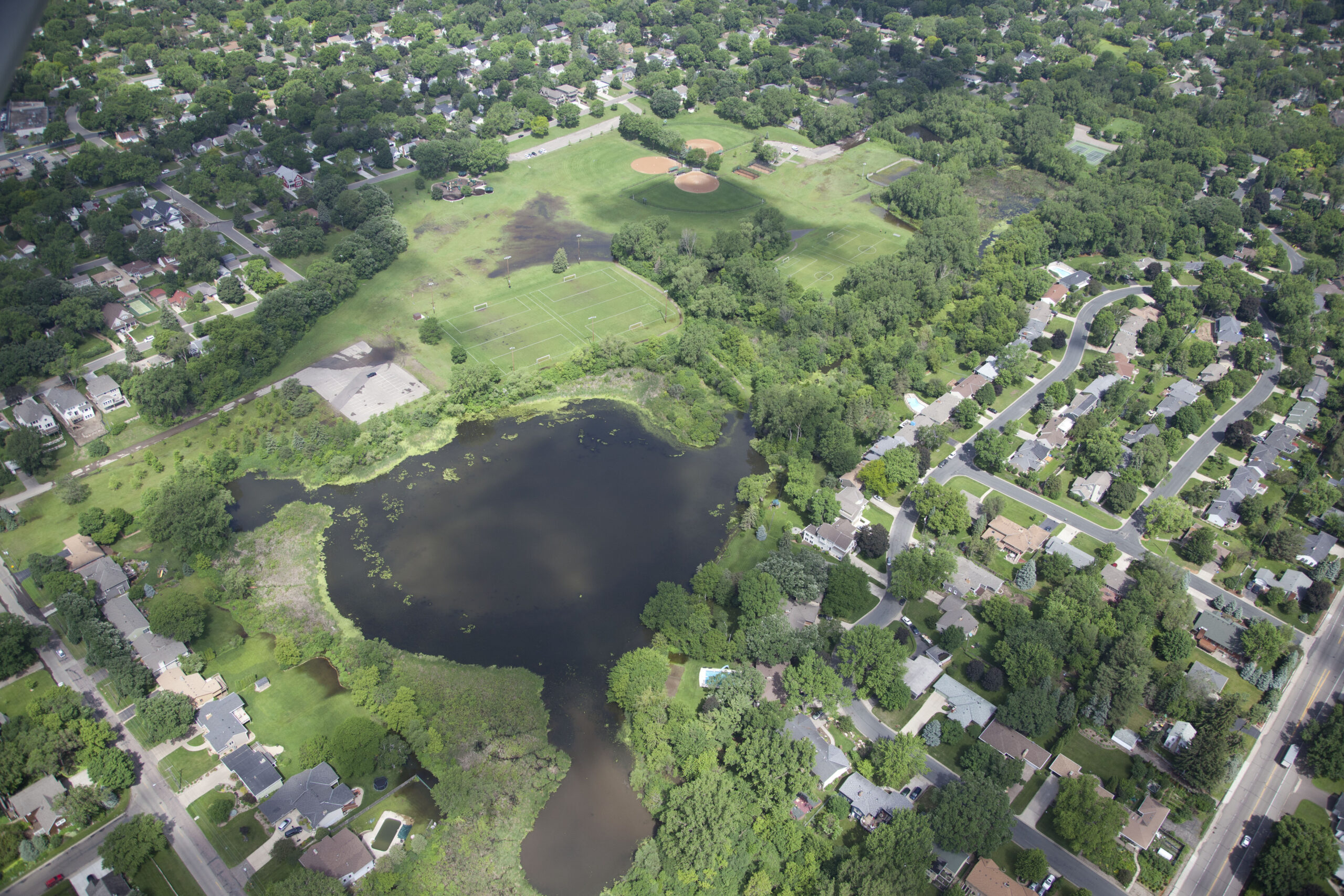
Chain of Lakes and Twin Lakes Subwatershed Improvements
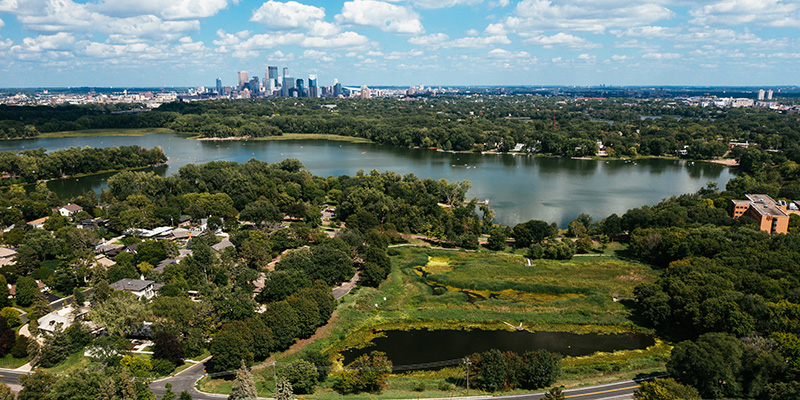
Overview
The Minnehaha Creek Watershed District, with the aid of the Minneapolis Chain of Lakes Clean Water Partnership (CWP), took on an extensive seven-year initiative to improve water quality throughout the Minneapolis Chain of Lakes. The result was a series of award-winning water quality improvement strategies implemented in some of the Twin Cities’ most- used lakes that became the nation’s largest urban lake restoration, including wetland restorations, storm sewer improvements, and public education.
The Minneapolis Chain of Lakes draws over 5 million visitors annually. However, urban development had degraded water quality, which contributed to algae blooms and impacted recreation on the lakes. Water quality studies in the early 1990s identified that the Twin Lakes Subwatershed contributed more than 50 percent of the flow and more than 60 percent of the phosphorus loading into Cedar Lake. Water quality improvement efforts were focused on the Twin Lakes Subwatershed upstream of Cedar Lake, and then progressed down to Cedar Lake, and the rest of the Chain of Lakes. MCWD led projects with Minneapolis Parks and Recreation Board and the City of Minneapolis to enhance stormwater ponds near Lake Nokomis and Bde Maka Ska, resulting in improved water quality for both lakes. Over the course of several years, the water quality projects included construction of wetland and stormwater ponds, shoreline restorations, alum treatments, and the installation of grit chambers.

Project Updates
Over the years, the Chain of Lakes Project has received several awards for its successful improvements to local water quality, innovative partnerships, and the strategic use of community input. Given by the Conservation Fund to MCWD and its partners for the Minneapolis Chain of Lakes Clean Water Partnership, the CF Industries National Watershed Award recognizes one corporation and three communities nationwide for their outstanding leadership in protecting America’s water resources. MCWD received the Minneapolis Award for Community Service for more than 10 years of protecting natural resources and cleaning up water in Minneapolis and the Minnehaha Creek Watershed. MCWD was nominated for the City of Minneapolis’ CUE Award for its design of the Southwest Bde Maka Ska Ponds, for outstanding designs that improve the quality of the urban landscape.
Project Timeline

Planning Phase
Planning Phase
1993 — Diagnostic Study for Chain of Lakes completed
1993 — Twin Lakes Task Force formed
1994 — Feasibility study completed
1994 — Planning phase completed

Design Phase
Design Phase
1994 — Design phase begins
1995 — Design completed

Construction Phase
Construction Phase
1995 — Twin Lakes Park Wet Detention Basin built and Twin Lakes dredged
1995 — Cedar Meadows Wet Detention Basin and wetland built
1999 — Bde Maka Ska Wetland Ponds built
1999 — Construction completed

Project completion
Project Completion
1999 — Project completed
2004 — Maintenance sediment removal occurred on Bde Maka Ska Wetland Pond to restore the pond’s capacity
2012 — Maintenance sediment removal occurred on Twin Lakes Park Pond and Bde Maka Ska Wetland Pond to restore the pond’s capacity
By the Numbers
600
pounds
of annual phosphorus reduction
205
pounds
of annual phosphorus reduction from twin lakes park pond
152
pounds
of annual phosphorus reduction from cedar meadows pond
255
pounds
of annual phosphorus reduction from Bde maka ska ponds
Project Highlights
- Lowered Twin Lakes outlet
- Increased depth of Twin Lake
- Created 3 stormwater ponds
- 3 community awards received
- Aquatic vegetation and shoreline restorations
- 120-foot pedestrian bridge at Bde Maka Ska Pond
Partnership
The award-winning Clean Water Partnership (CWP) included the cities of Minneapolis and St. Louis Park, the Minnehaha Creek Watershed District, the Minnesota Pollution Control Agency, Hennepin County and the Minneapolis Park adn Recreation Board (MPRB). MCWD worked closely with St. Louis Park, Minneapolis, and the MPRB to incorporate watershed improvements into the Clean Water Partnership Grant that was awarded to MPRB. A cooperative agreement among the parties, coordinated responsibilities over six years of planning, hours of meetings with citizens and stakeholders, careful coordination with local elected officials, and thoughtful design work.
Funding
Project Cost: $12,400,000
The $12.4 million project was funded and sponsored by the cities of Minneapolis and St. Louis Park, Hennepin County, Minneapolis Park and Recreation Board, MCWD and grants from the Minnesota Pollution Control Agency.

